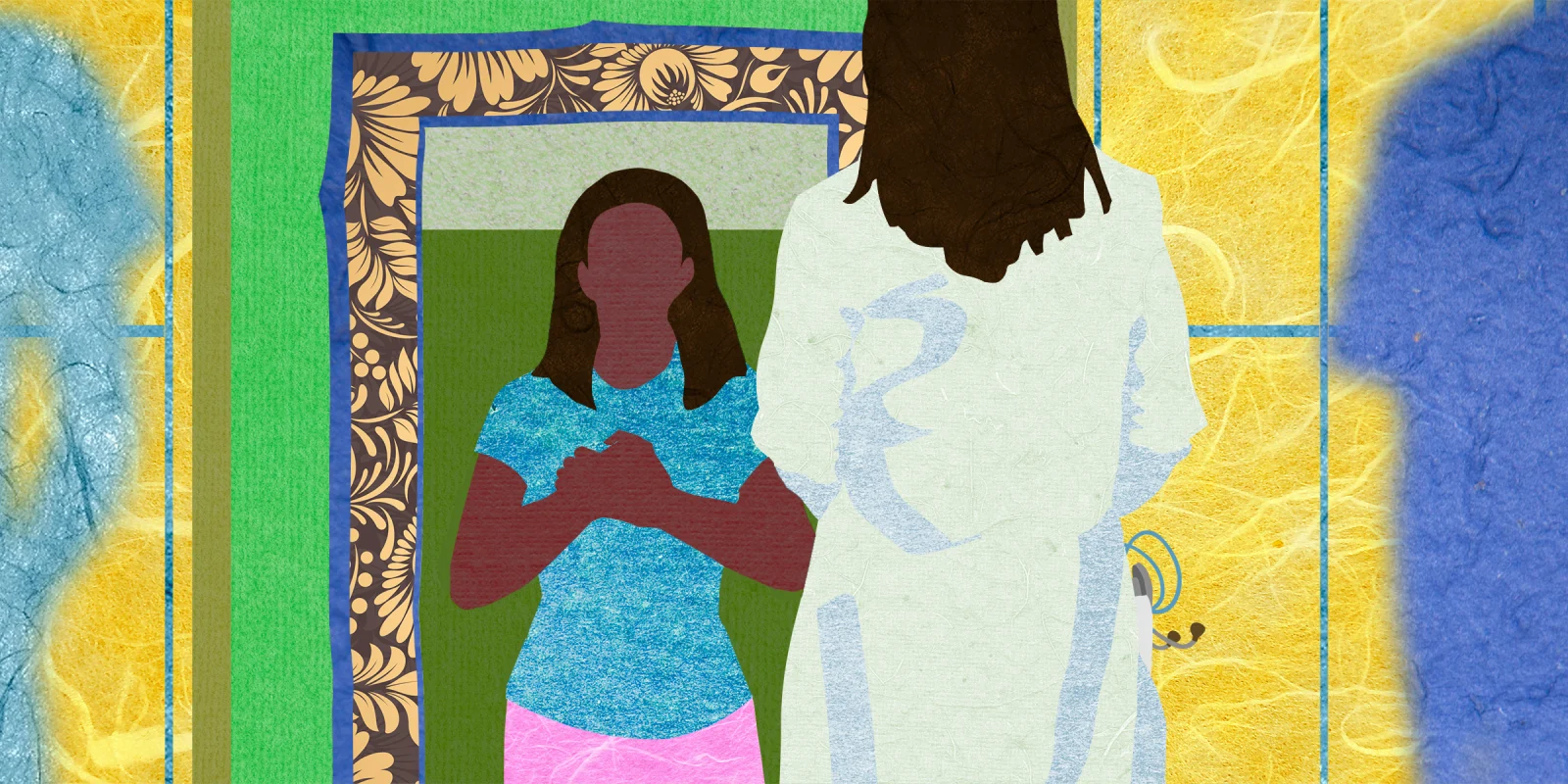As someone with anorexia, I still don’t know the last time I consistently ate three meals per day. I’d also be hard-pressed to tell you when I ate two. Typically, eating for me happens at the end of the day. On the days I work, I’m constantly making a decision between getting enough sleep and eating breakfast. I always choose sleep. Lunch rolls around and I’m busy seeing patients or in the middle of conducting a procedure and there’s no time for food. Around 4 or 5 p.m., I get a message from someone I care about asking if I’ve eaten today. Sometimes I don’t reply. Usually I tell them that the day got away from me yet again and I’ve gone the entire day without a meal.
Around 6 or 7 p.m., I walk through the door of my apartment and dinner is waiting for me, as my partner or my best friend has made me something to eat. It’s a well-balanced dish with vegetables and protein and lots of fat. The person feeding me is giving me approximately 1,500-2,000 calories. They’re scared because I’m so tired all the time and they can see that the blood vessels under my eyes are breaking again and that I clearly don’t look or feel well. The person feeding me is always close enough to me to squeeze my hands and sometimes my feet. There’s a comment about how cold my hands are and they ask if my chest still hurts. I get company or monitoring on long walks and there’s no exercise for me. This is anorexia.
While at home and in my personal life there is constant monitoring, I can get away with my cold hands in the hospital. People think doctors have cold hands anyway and my toothy, genuine grin usually makes up for my popsicles of fingers. No cups of tea get shoved into my hands or blankets wrapped around my body. Patients believe I’m tired and that’s why there are bags under my eyes. And my scrubs and sweatshirt can cover my wan legs and arms. The masks we’re wearing in the hospital all the time break up the blotchiness of my face.
The problem with anorexia is that I didn’t get here overnight or by myself. The incessant comments about my body from patients where they congratulate me on my thinness only made me want to weigh less. And they eroded my personal sense of value over time. My community of physicians also congratulated me for my maladaptive patterns. I can operate all day without eating anything. I don’t have to leave the OR or the floor to eat a snack or get water. I’m able to steady my hands and stand over patients, engaging in whatever necessary task without needing to leave to pee. I have no hunger cues that I succumb to. I am a force of nature.
As this disease has continued to consume my body and my mind, I no longer faint when I don’t eat. I don’t even begin to feel lightheaded. I have learned to break these with willpower. I am strong, but my strength is slowly killing me. I don’t know if I am hungry anymore. Usually, I just mistake this for fatigue and that is something people can tolerate — we are all tired all the time. As a Black woman with natural hair and a loud voice, people are already finding me threatening. But my perceived weakness due to the dark circles under my eyes and my thinness makes me non-threatening. This is my edge that I can’t stand the idea of losing. The one good thing I have is my bedside manner and my ability to connect with others. I don’t know who I am as a doctor or as another person if I lose that ability to connect.
Recovery from this disease is hard when my fellow clinicians, as well as the public, mistake or overlook the signs. There’s a fine line between competence and excessive control, and until we stop confusing one for the other, more people like me will suffer in silence. Some resources that I’ve found helpful for managing my anorexia as a medical professional include The National Eating Disorder Association, the Academy for Eating Disorders, and Eating Disorder Therapy LA. I urge other clinicians to peruse these and learn more about this dangerous illness.
Although the past two years have been hard on us all, one upside to COVID-19 is that it has jump-started the conversation around self-care and personal health. Paying attention to issues like anorexia in our colleagues is a way that we can all become more aware, and more understanding, of what those around us may be going through.
I know that if I get better I will be a better doctor. I know that while I am surviving now and I appear to be thriving, I will likely be even more effective when I am healthy. I hope I can unlearn my unhealthy patterns without unlearning my sense of self. It’ll be easier going if the conversation around anorexia in the medical community changes.
How do you take care of your health as a clinician? Do you feel like your colleagues understand what you may be going through, health-wise? Share your thoughts and experiences in the comments below.
Micaela Stevenson is a fourth year medical student at the University of Michigan. She is planning to go into obstetrics and gynecology with a subspecialty in reproductive endocrinology and infertility. You can find her on instagram @babydocatyourcervix.
If you or someone close to you is struggling with an eating disorder, please call the National Eating Disorder Association at 800-931-2237 or text NEDA to 741741.
Illustration by Jennifer Bogartz







